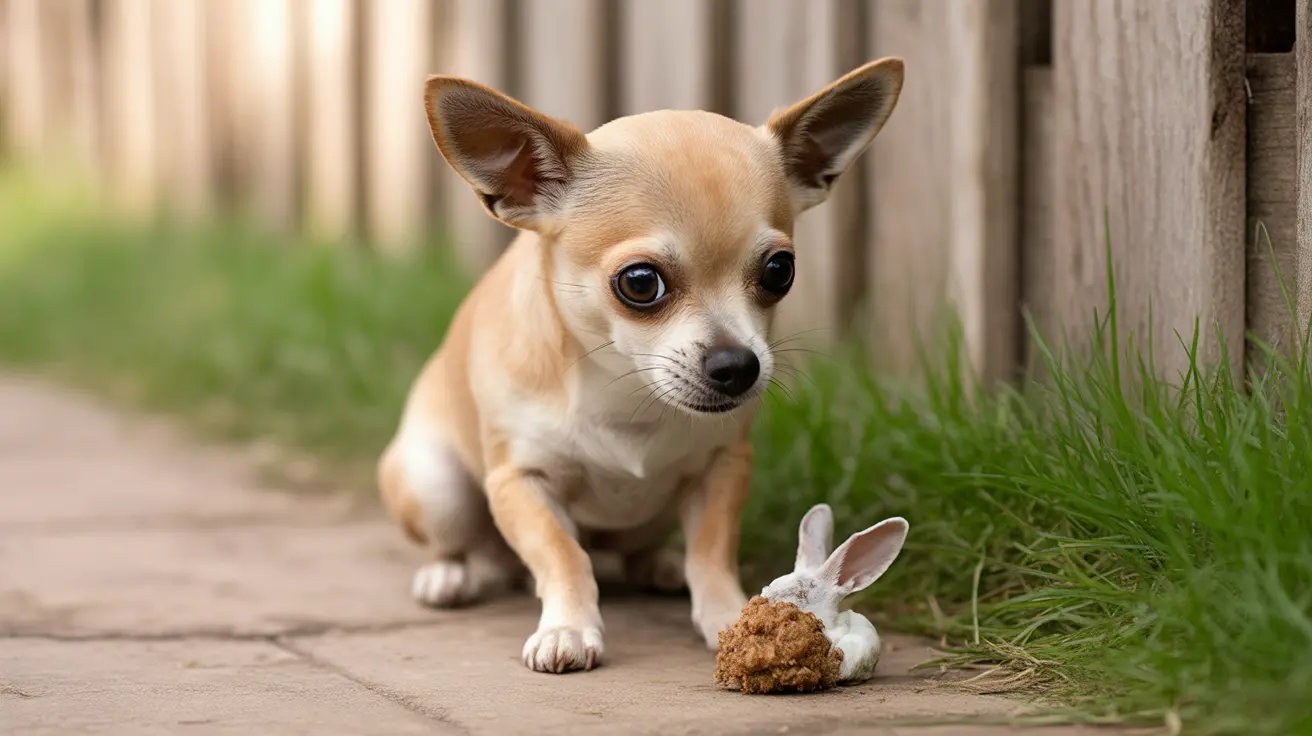Understanding Why Dogs Eat Rabbit Droppings
If you've caught your dog snacking on rabbit droppings in the backyard, you're not alone. This behavior, known as coprophagia, is surprisingly common among our canine companions. While it might seem disgusting to us, dogs are naturally attracted to rabbit droppings due to their rich enzyme content and the undigested plant material they contain.
Most dogs that eat rabbit poop are simply following their natural scavenging instincts. The behavior can also be triggered by nutritional deficiencies, curiosity, or even boredom. Understanding why your dog engages in this behavior is the first step in addressing it effectively.
Health Risks and Safety Concerns
The good news is that rabbit droppings are generally not toxic to dogs. Most healthy dogs won't experience serious issues from occasional consumption of rabbit poop. However, there are some potential health risks to be aware of:
Immediate Health Concerns
- Mild digestive upset
- Temporary diarrhea
- Occasional vomiting
- Increased gas
- Brief loss of appetite
More Serious Risks
- Possible exposure to parasites like coccidia or Giardia
- Rare chance of bacterial infections
- Risk of dehydration if digestive issues persist
- Potential complications for dogs with compromised immune systems
What to Do If Your Dog Eats Rabbit Poop
If you catch your dog eating rabbit droppings, stay calm and follow these steps:
- Remove your dog from the area
- Monitor their behavior for 24-48 hours
- Watch for signs of digestive upset
- Ensure they have access to fresh water
- Contact your vet if serious symptoms develop
Prevention Strategies
Taking proactive steps can help prevent your dog from eating rabbit droppings:
- Keep your yard clean and regularly remove rabbit droppings
- Use deterrents to keep rabbits out of your yard
- Train your dog to respond to "leave it" commands
- Consider using a basket muzzle during walks if necessary
- Maintain regular wellness checks and parasite prevention
When to Contact Your Veterinarian
While most cases resolve on their own, certain symptoms warrant immediate veterinary attention:
- Severe or persistent vomiting
- Bloody diarrhea
- Lethargy or weakness
- Loss of appetite lasting more than 24 hours
- Signs of dehydration
- Fever or unusual behavior
Frequently Asked Questions
Why do dogs eat rabbit poop and is this behavior normal?
Eating rabbit poop is a common behavior in dogs, driven by natural scavenging instincts and attraction to the digestive enzymes present in rabbit droppings. While not ideal, it's considered normal canine behavior.
What are the health risks if my dog eats rabbit poop?
Most healthy dogs experience minimal risks from eating rabbit poop. The main concerns are mild digestive upset and possible exposure to parasites, though serious complications are rare.
How can I tell if my dog is sick after eating rabbit feces?
Watch for signs like vomiting, diarrhea, lethargy, or loss of appetite. Most symptoms are mild and resolve within 24-48 hours.
What should I do if my dog ate a large amount of rabbit poop?
Monitor your dog closely for signs of illness and ensure they have access to fresh water. If they show persistent symptoms or unusual behavior, contact your veterinarian.
How can I prevent my dog from eating rabbit droppings during outdoor walks?
Train your dog to respond to "leave it" commands, use a basket muzzle if necessary, and keep them on a shorter leash in areas where rabbit droppings are common.
Conclusion
While finding your dog eating rabbit poop can be concerning, understanding that it's usually not a serious health risk can help put your mind at ease. Focus on prevention strategies and monitor your pet for any unusual symptoms. When in doubt, always consult with your veterinarian for personalized advice based on your dog's specific health needs.






